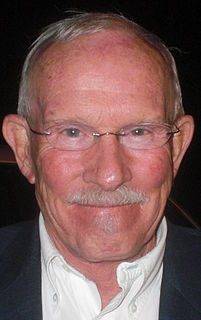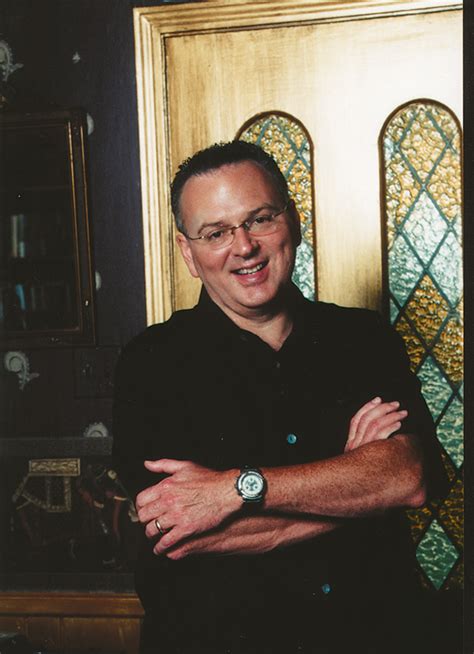Top 453 Translated Quotes & Sayings - Page 8
Explore popular Translated quotes.
Last updated on April 16, 2025.
You have heard of the new chemical nomenclature endeavored to be introduced by Lavoisier, Fourcroy, &c. Other chemists of this country, of equal note, reject it, and prove in my opinion that it is premature, insufficient and false. These latter are joined by the British chemists; and upon the whole, I think the new nomenclature will be rejected, after doing more harm than good. There are some good publications in it, which must be translated into the ordinary chemical language before they will be useful.
Before I wrote The Power of Now, I had a vision that I had already written the book and that it was affecting the world. I had a sense there was already a book somehow in existence. I drew a circle on a piece of paper and it said "book." Then I wrote something about the effect the book had on the world, how it influenced my life and other people's lives, and how it came to be translated into many languages affecting hundreds of thousands of people.
Professor Irwin Corey had some of the best timing in the world, and that is something you can't steal. He talked nonsense, not punch-lines, per se. It was a great performance thing he did and his timing was impeccable. Pat Paulsen was a master of comedy too. The Smothers Brothers' strength was not in the content, but how it was said. We had a couple of our albums, including the Purple Onion album, translated in script form. It didn't work at all. It is no wonder that writers had a hard time writing for the Smothers Brothers, because they wrote impressions, but there was something else.
The theory I'm putting forward here is that storytelling is a genetic characteristic in the sense that early human hunters who were able to organize events into stories were more successful than hunters who weren't—and this success translated directly into reproductive success. In other words, hunters who were storytellers tended to be better represented in the gene pool than hunters who weren't, which (incidentally) accounts for the fact that storytelling isn't just found here and there among human cultures, it's found universally.
With My Dog-Eyes by Hilda Hilst got more exposure and reached far more readers than I ever expected. Even my editor at Melville House, who championed the project form the outset, told me she was surprised by the response. After this, editors began asking my opinion about which Latin American writers ought to be translated. I realized I had some cultural capital to spend, and I wanted to use it to introduce another author who might be considered a risk by conventional publishers. Michael Noll was at the top of my list.
The language in New Mexico is very different. At first when you hear the speech here, you don't really know what to do with it, but then I just went with it, because as a writer as well as a translator I do believe that translated words are not different names for the same thing. They're different names for different things. I tried to stay as true as I could, so I used Ruben Cobos' dictionary of Southwestern Spanish, and when I went into Spanish I never assumed the word I would use would be the word a nuevomexicano would use.
Outside his office my father had a framed copy of a letter written by Abraham Lincoln to his son's teacher, translated into Pashto. It is a very beautiful letter, full of good advice. Teach him, if you can, the wonder of books...But also give him quiet time to ponder the eternal mystery of birds in the sky, bees in the sun, and the flowers on a green hillside, it says. Teach him it is far more honorable to fail than to cheat.
There is a vitality, a life force, a quickening that is translated through you into action, and because there is only one of you in all time, this expression is unique, and if you block it, it will never exist through any other medium, and be lost. The world will not have it. It is not your business to determine how good it is, not how it compares with other expression. It is your business to keep it yours clearly and directly, to keep the channel open.
When I published my first work, I thought I would never be able to go back to Lebanon. I thought they'd arrest me at the airport. I thought I would change literature as we know it. I thought I'd have men lining up at my door wanting to be my boyfriend. But later I discovered that no one read the book. Or no one cared. Right now, I have only one book translated into Arabic. Someday, maybe if the Syrian regime falls, there will be others, but probably another regime will come into power and it will employ just as much censorship.
The Little Mute Boy The little boy was looking for his voice. (The king of the crickets had it.) In a drop of water the little boy was looking for his voice. I do not want it for speaking with; I will make a ring of it so that he may wear my silence on his little finger In a drop of water the little boy was looking for his voice. (The captive voice, far away, put on a cricket's clothes.) Translated by William S. Merwin
Once I looked into it, I was taken aback to learn that pretty much nothing by João Gilberto Noll was available in English translation. I was confident that I could find an editor and the readership for a translation: Noll is highly respected in Brazil, and at the same time divisive, somewhat like Hilda Hilst. Neither of them enjoys the universal acclaim you might associate with Clarice Lispector, whom everyone adores, myself included. Still, I considered it a tremendous injustice that Noll had not been more widely translated and was determined to rectify it.
These short stories are vast structures existing mostly in the subconscious of our cultural history. They will live with the reader long after the words have been translated into ideas and dreams. That's because a good short story crosses the borders of our nations and our prejudices and our beliefs. A good short story asks a question that can't be answered in simple terms. And even if we come up with some understanding, years later, while glancing out of a window, the story still has the potential to return, to alter right there in our mind and change everything.
A great emotion is too selfish ; it takes into itself all the blood of the spirit, and the congestion leaves the hands too cold to write. Three sorts of emotion produce great poetry - strong but quick emotions, seized upon for art as soon as they have passed, but not before they have passed ; strong and deep emotions in their remembrance along time after ; and false emotions, that is to say, emotions felt in the intellect. Not insincerity, but a translated sincerity, is the basis of all art.
The education of our people should be a lifelong process by which we continue to feed new vigor into the lifestream of the Nation through intelligent, reasoned decisions. Let us not think of education only in terms of its costs, but rather in terms of the infinite potential of the human mind that can be realized through education. Let us think of education as the means of developing our greatest abilities, because in each of us there is a private hope and dream which, fulfilled, can be translated into benefit for everyone and greater strength for our Nation.
I want first of all - in fact, as an end to these other desires - to be at peace with myself. I want a singleness of eye, a purity of intention, a central core to my life that will enable me to carry out these obligations and activities as well as I can. I want, in fact - to borrow from the language of the saints - to live 'in grace' as much of the time as possible. I am not using this term in a strictly theological sense. By grace I mean an inner harmony, essentially spiritual, which can be translated into outward harmony.
There have always been dreamers. Men and women who catch a glimpse of something beyond themselves who dare to reach for goals and visions. .. Yet no earthly dreamer can match the greatest of them all, the Dreamer who died on the cross to make His dream a reality. John 1:1 says, "In the beginning was the Word." The literal meaning of logos, the original Greek term translated as "Word," is idea, thought or blueprint. It is an ancient Greek theatrical term describing the work of a playwright as he conceives, or dreams up, the plot of a play. So we could say, "In the beginning was the dream".
When we can't hold back, or set boundaries, on what comes from our lips, our words are in charge-not us. But we are still responsible for those words. Our words do not come from somewhere outside of us, as if we were a ventriloquist's dummy. They are the product of our hearts. Our saying, "I didn't mean that," is probably better translated, "I didn't want you to know I thought that about you." We need to take responsibility for our words. "But I tell you that men will have to give account on the day of judgment for every careless word they have spoken" (Matt. 12:36).
Knowledge passes from dance teacher into the student through the process of mane, which is often translated as imitation, but learning to dance is more a process of total identification than of simple copying. We repeat the movements of our teachers until we can duplicate them exactly, until, in a sense, we have absorbed the teacher's mastery into ourselves. Artistic technique must be fully integrated into the cells of our bodies if we are to use it to express what is in our hearts, and this takes many years of practice.
Variación / Variations El remanso de aire bajo la rama del eco. El remanso del agua bajo fronda de luceros. El remanso de tu boca bajo espesura de besos. * The still waters of the air under the bough of the echo. The still waters of the water under a frond of stars. The still waters of your mouth under a thicket of kisses. Translated from the Spanish by Lysander Kemp
Of course my books are translated into many languages. I have here, in my home, translations on my shelf of my books into forty-five different languages. Almost none of them I can read. I can read only the English editions. But, I know that a translation of a work of literature is like playing a violin concerto on the piano. You can do this. You can do this very successfully on one strict condition: never try to force the piano to produce the sounds of the violin. This will be grotesque. So, different musical instruments provide for different music.
A $200 million contract just got awarded to develop software to provide the Department of Defense with all these sock puppets who have fake Twitter and Facebook accounts. Why not create ten fake Libyan Twitter users and then get one journalist to follow them. But the problem is, of course, it corrupts the entire process. One of the caveats is that anything they write is going to be in a foreign language so it won't affect Americans. But that doesn't make any sense because: A) it can be translated pretty easily, and B) Americans also speak other languages.
The second volume of Reiner Stach's epic biography of Franz Kafka . . . [is] a tangle of counter-grained and often under-sourced life stories, but reading Stach's magnificent narrative (wonderfully translated by Shelley Frisch) straight through brings death, not life, to the forefront. Stach is a compulsively readable writer. . . . [A]s in the previous volume, the prose in The Years of Insight is supple and very appealingly complex--all of which, once again, is perfectly rendered by Frisch.
The idea of beauty which man creates for himself imprints itself on his whole attire, crumples or stiffens his dress, rounds off or squares his gesture, and in the long run even ends by subtly penetrating the very features of his face. Man ends by looking like his ideal self. These engravings can be translated either into beauty or ugliness; in one direction, they become caricatures, in the other, antique statues.
Peace is no mere matter of men fighting or not fighting. Peace, to have meaning for many who have known only suffering in both peace and war, must be translated into bread or rice, shelter, health, and education, as well as freedom and human dignity - a steadily better life. If peace is to be secure, long-suffering and long-starved, forgotten peoples of the world, the underprivileged and the undernourished, must begin to realize without delay the promise of a new day and a new life.
These teachings in regard to woman so faithfully reflect the provisions of the canon law that it is fair to infer that their inspiration came from the same source, written by men, translated by men, revised by men. If the Bible is to be placed in the hands of our children, read in our schools, taught in our theological seminaries, proclaimed as God's law in our temples of worship, let us by all means call a council of women in New York, and give it one more revision from the woman's standpoint.
Although most informed balletomanes would place artistry above technique, artistry without a strong technique is a flaccid, bloodless thing indeed, whereas technique without much artistry can still dazzle us in the manner of the circus or sports arena translated to a higher plane. Though the perfect blend of the two elements is the consummation devoutly to be wished, the real enemy of good ballet is not the slight preponderance of one or the other but the prevalence of pantomime--the turning of dance into second-rate theater.
Sam:"Okay, what words would you use then?" I leaned back in the seat, thinking, as Sam looked at me doubtfully. He was right to look doubtful. My head didn't work with words very well- at least not in this abstract, descriptive sort of way. Grace:"Sensitive" I tried. Sam translated: "Squishy" Grace:"Creative" Sam:"Dangerously emo" Grace:"Thoughtful" Sam:"Feng shui." I laughed so hard I snorted. Grace:"How did you get feng shui out of thoughtful?" Sam:"You know, because in feng shui, you arrange funiture and plants and stuff in thoughtful ways.
We, as parents, must understand the serious responsibility that we have in inculcating love for God in the hearts of children. If our children do not feel love they will not understand God’s love because the love of the parent is translated to the children as the love of God. When they feel their parents' love, they can actually begin to understand God’s love.
The first effect of the mind growing cultivated is that processes once multiple get to be performed in a single act. Lazarus has called this the progressive "condensation" of thought. ... Steps really sink from sight. An advanced thinker sees the relations of his topics is such masses and so instantaneously that when he comes to explain to younger minds it is often hard ... Bowditch, who translated and annotated Laplace's Méchanique Céleste, said that whenever his author prefaced a proposition by the words "it is evident," he knew that many hours of hard study lay before him.
I had always assumed we had an unspoken understanding about these things: that she didn't really mean I was a failure, and I really meant I would try to respect her opinions more. But listening to Auntie Lin tonight reminds me once agian: My mother and I never really understood one another. We translated each other's meanings and I seemed to hear less than what was said, while my mother heard more. No doubt she told Auntie Lin I was going back to school to get a doctorate.
There are certain concepts, which exist in English, and are unthinkable, untranslatable into Hebrew and vice versa. Hebrew has a system of tenses, which is, in a big way, different from the English system of tenses, probably different than any European system of tenses, which means a different sense of reality, which means a different concept of time. So, things can be translated, but they become different.
Toska - noun /?t?-sk?/ - Russian word roughly translated as sadness, melancholia, lugubriousness. "No single word in English renders all the shades of toska. At its deepest and most painful, it is a sensation of great spiritual anguish, often without any specific cause. At less morbid levels it is a dull ache of the soul, a longing with nothing to long for, a sick pining, a vague restlessness, mental throes, yearning. In particular cases it may be the desire for somebody of something specific, nostalgia, love-sickness. At the lowest level it grades into ennui, boredom.
Marilla felt more embarrassed than ever. She had intended to teach Anne the childish classic, "Now I lay me down to sleep." But she had, as I have told you, the glimmerings of a sense of humor--which is simply another name for a sense of the fitness of things; and it suddenly occurred to her that simple little prayer, sacred to the white-robed childhood lisping at motherly knees, was entirely unsuited to this freckled witch of a girl who knew and cared nothing about God's love, since she had never had it translated to her through the medium of human love.





























